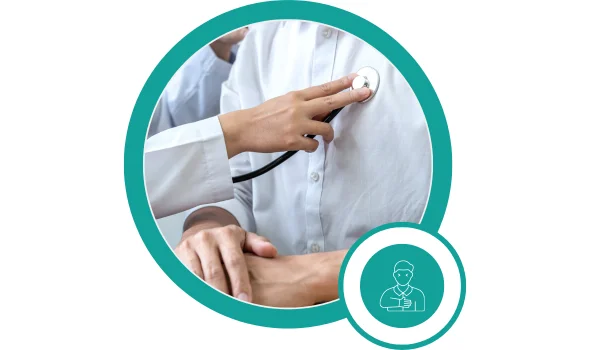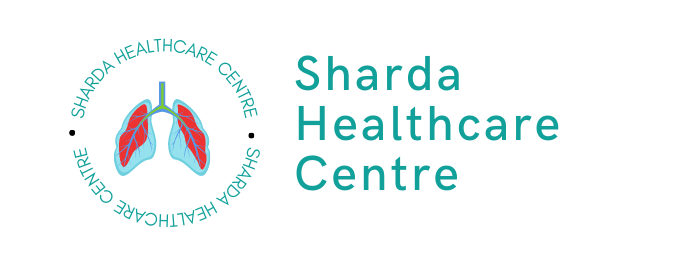In Jaipur, the treatment of chest diseases is well-developed and offers a range of options for patients. The city is equipped with advanced medical facilities, experienced doctors, and specialized clinics dedicated to chest diseases. Various treatment modalities are available, including medication, respiratory therapy, pulmonary rehabilitation, and surgical interventions. Jaipur’s healthcare infrastructure ensures access to state-of-the-art diagnostic tools and cutting-edge treatments for conditions like asthma, chronic obstructive pulmonary disease (COPD), pneumonia, and tuberculosis. Additionally, the city emphasizes patient education, awareness programs, and preventive measures to promote respiratory health. With its comprehensive approach to chest disease treatment, Jaipur provides quality healthcare and a path to improved respiratory well-being for its residents.

Chest disease treatment in Jaipur.

What causes chest pain?
Chest pain can have various causes, ranging from mild to severe. Common causes include muscle strain, indigestion, and anxiety. However, more serious conditions such as heart disease, lung infections, or gastrointestinal issues can also lead to chest pain. Other factors like acid reflux, costochondritis, or even stress may contribute to discomfort in the chest area. It is crucial to seek medical attention for chest pain to determine the underlying cause and receive appropriate treatment. Only a healthcare professional can accurately diagnose and provide guidance based on the specific symptoms and individual circumstances.
Heart-related causes of chest pain
Heart-related causes of chest pain include angina, myocardial infarction (heart attack), and pericarditis (inflammation of the heart lining). These conditions can result from coronary artery disease, blood clots, or heart valve problems. Prompt medical evaluation is essential to differentiate heart-related chest pain from other non-cardiac causes and initiate appropriate treatment.
Gastrointestinal causes of chest
Gastrointestinal causes of chest pain can include gastroesophageal reflux disease (GERD), esophageal spasm, peptic ulcers, or gallbladder issues. These conditions can result in discomfort or a burning sensation in the chest area. Proper diagnosis by a healthcare professional is crucial to determine the exact cause and provide appropriate treatment for gastrointestinal-related chest pain.
Lung-related causes of chest pain
Lung-related causes of chest pain can include conditions such as pneumonia, pleurisy (inflammation of the lining around the lungs), pulmonary embolism (blood clot in the lung), or pneumothorax (collapsed lung). These conditions can lead to sharp or stabbing chest pain and require prompt medical evaluation for accurate diagnosis and appropriate treatment.
Heart Related Symptoms
Heart-related symptoms can vary depending on the specific condition. Common symptoms include chest pain or discomfort, shortness of breath, palpitations (rapid or irregular heartbeat), fatigue, dizziness, and swelling in the legs, ankles, or feet. Other signs may include nausea, lightheadedness, sweating, and pain radiating to the arm, jaw, or back. It is important to note that not all individuals experience the same symptoms, and some may even have silent heart conditions. If you experience any concerning symptoms, it is crucial to seek medical attention for proper evaluation and diagnosis.
How is chest pain diagnosed?
Chest pain is diagnosed through a combination of medical history, physical examination, and diagnostic tests. The process may involve assessing the nature and location of the pain, accompanying symptoms, and risk factors. Diagnostic tests may include electrocardiogram (ECG), blood tests, chest X-ray, echocardiogram, stress tests, or cardiac catheterization. These evaluations help determine the underlying cause of the chest pain, whether it is related to the heart or other factors, allowing healthcare professionals to provide appropriate treatment and management.
How is chest pain treated?
The treatment of chest pain depends on its underlying cause. For heart-related causes such as angina or heart attack, immediate medical intervention is crucial. This may involve medications like nitroglycerin, aspirin, or clot-busting drugs, as well as procedures like angioplasty or coronary artery bypass grafting (CABG). Chest pain due to gastrointestinal issues might be managed with lifestyle modifications, medications to reduce acid reflux, or antibiotics for infections. Lung-related causes may require antibiotics, pain relievers, or interventions like draining fluid or re-inflating the lung. In all cases, it is important to consult a healthcare professional to determine the appropriate treatment plan based on the specific cause and individual circumstances.
Quick Contact
Address
70, 46, Patel Marg, opposite Rastogi Gas Agency, Mansarovar Sector 7, Agarwal Farm, Sector 9, Mansarovar, Jaipur, Rajasthan 302020
deveshkanoongo0701@gmail.com
Phone No.
9024605799, 9414774975
